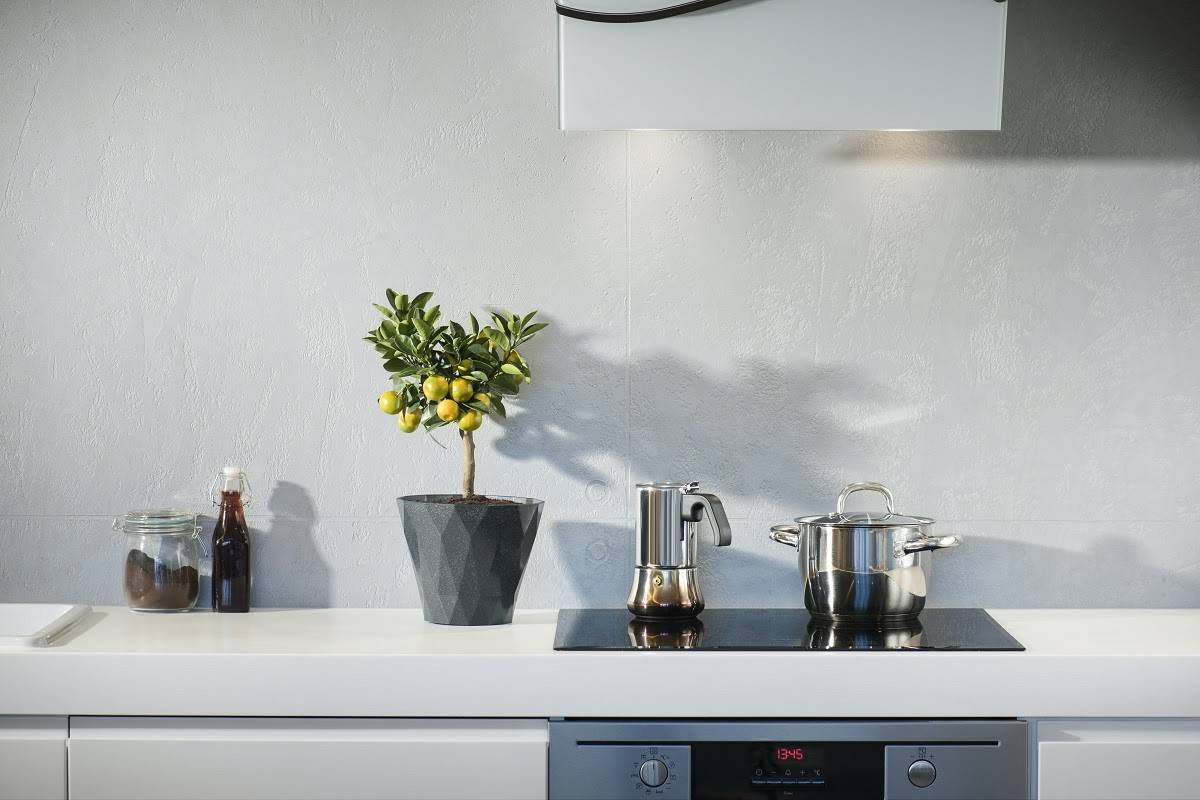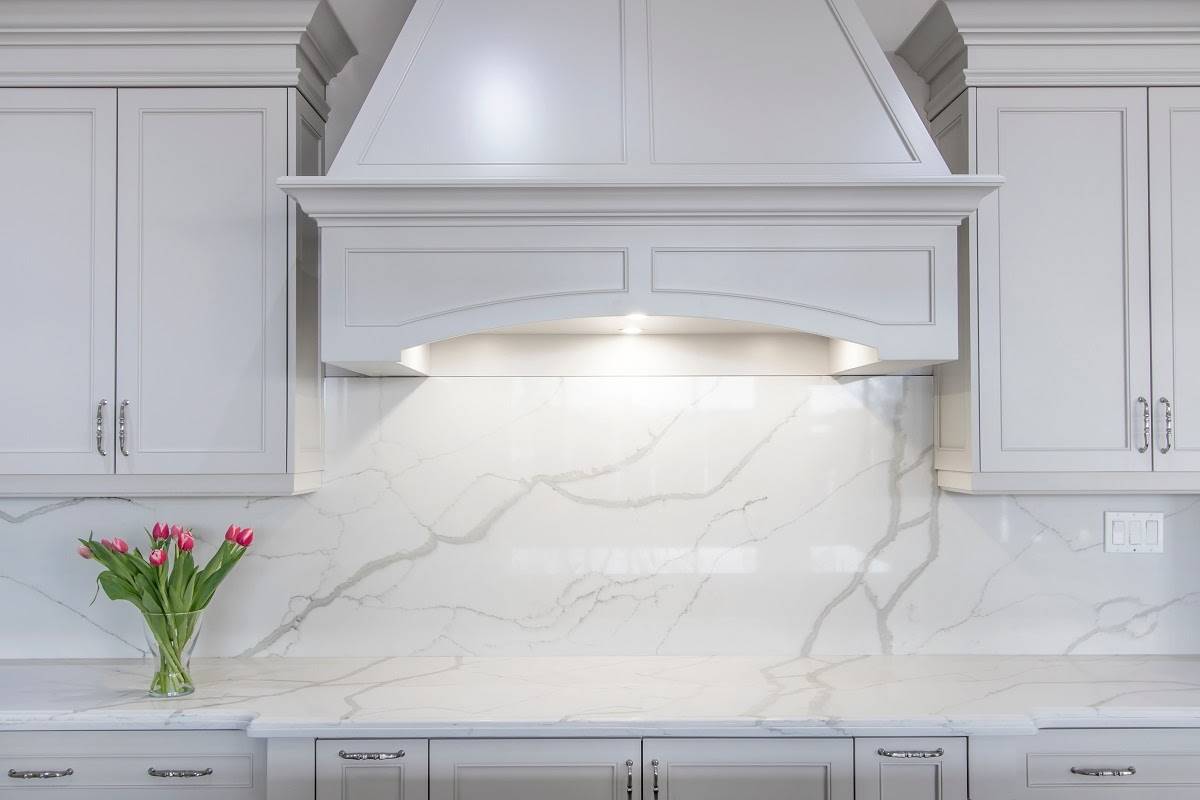How to Choose the Ideal Quartz Countertop Thickness
Choosing the right quartz countertop material is one of the most important decisions you’ll make when remodeling your kitchen or your bathroom. It defines the space with its unique and natural patterns, bold or minimal colors, and perfectly smooth finish. It’s durable, long-lasting, and can be a true statement piece if you want it to be. But before you move forward with the process, you may be wondering what quartz countertop thickness you need.
Your quartz countertop thickness will be very visible in your kitchen, with thicker and heavier slabs providing a more premium look. Thinner slabs are more cost-effective and can play a role in developing a more modern looking space – but it all depends on the style for which you’re going.
At Pro Stone Countertops, we offer both thin and thick options for a huge variety of quartz slabs, and our team is always happy to help you choose which is right for you. We also keep our website updated to help our customers make the right decisions. On this page, we’ll explore quartz stone thickness and how you can decide which option is right for you.
Quartz Countertop Thickness Options
There is no standard quartz thickness, but rather two general options from which you can choose. Thickness grade 1 is a thinner option, while grade 2 is thicker and heavier. Your decision depends on a number of factors, ranging from your budget to the ideal style for your space.
Thickness Grade 1

The typical thickness of quartz countertops starts with grade 1, which is anywhere between 1cm and 2cm per slab. Here’s what you need to know about thinner slabs:
Less Expensive
A thinner quartz countertop slab is made of less stone, meaning they are generally less expensive and more accessible. It’s a great way of incorporating a premium material into a remodeled kitchen or bathroom while on a budget.
Weight
Being less heavy than our thick slabs, thinner quartz countertops are also perfect for more kitchens. If you’re refurbishing an existing kitchen, you can minimize the pressure placed on your cabinets with a thinner slab.
Better Suited for Countertops and Backsplashes
A thinner slab that protrudes on breakfast bars is at greater risk of being chipped. For this reason, thin slabs are best suited for countertops that have no overhang. The thickness of quartz backsplashes is also less important in this case as it attaches directly to a wall.
Thickness Grade 2

Our thicker quartz countertops are more premium, more durable, and heavier! These thick stone slabs are extremely long-lasting, made of the highest-quality quartz, and lovingly installed by our kitchen installation experts.
You should expect a 3cm quartz thickness in this grade, which offers two particularly important benefits:
More Durable
Thicker quartz is more durable, meaning it’s perfectly suited for breakfast bars and overhanging counters. They’re less likely to chip or break over time and are simpler to install as they do not require plywood support.
More Premium
Thick quartz slabs provide an instantly more premium look and you can purchase them confidently knowing that they will stand the test of time. Your stunning new quartz countertops will become one of the longest-lasting features of your home, while also being very easy to maintain.
Quartz Thickness Points to Consider
Now you know about the average thickness of quartz countertops, we have some top considerations to think about when making your decision.
Bathroom or Kitchen?

A thicker stone is more popular in kitchens as you’ll be working on the countertop with heavy objects like pans, chopping boards, and knives. In the bathroom, it’s easier to get away with a thinner stone.
What’s Your Budget?
If you’re working on a budget, thinner slabs offer a premium look at a more affordable price. You can opt for thicker slabs on the parts of your counter that you use the most, and thinner slabs in other parts of the room. The possibilities are endless.
Countertop or Backsplash?

Countertops with an overhang need to be made of thicker stone or be supported to ensure they do not crack over time. Backsplashes don’t need to be as thick, either, as they are fully supported by the wall behind them.
New Kitchen or Remodeling?
With a new kitchen, it’s easier to install thicker and heavier slabs. However, if you are remodeling an old kitchen, thinner slabs may be more convenient to install as they will put less pressure on the existing structure.
Preferred Edge Styling?

There are many edge styles to choose from on your stones. More decorative edge styles like dupont or ogee look better on a thinner slab, which is why they are typically used on bathroom countertops.
Bullnose or half bullnose edging styles, however, generally look better on a thicker stone.
Are You Trying to Increase Home Value?
If you are planning on increasing the value of your home, thicker stone slabs will create the most premium look and increase value further.
If you’re not sure which edging style is right for you, or you need advice deciding what would look right in your kitchen, why not call the Pro Stone team and get our expert advice? We’re always happy to help!
Call Mississippi’s Countertop Specialists for More Advice
From fabrication to installation, Pro Stone Countertops provides the most extensive range of quartz countertops, ideal for any style of kitchen or bathroom. With a huge selection of colors and competitive prices, the Pro Stone team will help you find the perfect option for your home.
Thick or thin, we use only the highest-quality stones, polished and finished to perfection, to transform your kitchen or bathroom.
To find out more about our quartz countertop options , the best quartz countertop thickness for your project, and how our team can help, call Pro Stone today at 662-212-5927!

